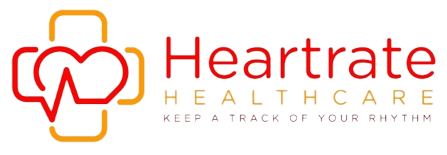The healthcare industry has witnessed remarkable transformations over the years, driven by advancements in technology. Within this sphere, Business Process Outsourcing (BPO) services have become a crucial component in optimizing operations and improving patient outcomes. For companies like Heartrate Healthcare, leveraging technology in BPO services offers unparalleled benefits, enabling efficiency, scalability, and compliance in an ever-evolving sector.
Streamlining Administrative Tasks
One of the significant challenges in healthcare is managing administrative tasks such as patient data management, billing, and appointment scheduling. Technology-driven BPO services employ automation tools like Robotic Process Automation (RPA) to handle repetitive and time-consuming tasks. These tools not only reduce errors but also free up healthcare professionals to focus on patient care.
For instance, automated billing systems streamline the claims process, ensuring accuracy and faster reimbursements. Similarly, intelligent scheduling tools enable seamless coordination of appointments, enhancing the overall patient experience.
Enhancing Data Management and Security
Healthcare BPO providers deal with sensitive patient information, making data security a top priority. Technology enables secure data management through cloud-based platforms and robust encryption techniques. These systems ensure that data is accessible to authorized personnel while remaining protected from breaches and unauthorized access.
Additionally, technologies such as blockchain are being adopted to maintain immutable and transparent records. This innovation helps in reducing fraud and ensuring compliance with regulatory standards like HIPAA (Health Insurance Portability and Accountability Act).
Improving Communication and Collaboration
Effective communication is at the heart of healthcare delivery. Advanced technologies such as telecommunication platforms and AI-powered chatbots enhance communication between healthcare providers, patients, and BPO teams. For instance, AI chatbots can handle patient queries round the clock, providing quick responses and directing more complex issues to human representatives.
Furthermore, cloud-based collaboration tools enable seamless information sharing among teams, regardless of their geographical location. This interconnectedness ensures timely updates, faster decision-making, and cohesive workflows.
Enabling Data-Driven Insights
Analytics and big data play a pivotal role in modern healthcare BPO services. By leveraging advanced analytics platforms, BPO providers can extract actionable insights from vast amounts of patient data. These insights enable healthcare organizations to identify trends, predict patient needs, and improve service delivery.
Predictive analytics, for example, can foresee potential health issues in patients, enabling proactive intervention. Similarly, data-driven strategies help in resource allocation and operational efficiency, reducing costs while maintaining high-quality care.
Supporting Scalability and Flexibility
Technology provides the foundation for scalability in healthcare BPO services. Cloud computing, in particular, allows providers to scale their operations according to demand without significant capital investment. This flexibility ensures that healthcare organizations can adapt to fluctuations in patient volume or operational requirements seamlessly.
Moreover, technological advancements like artificial intelligence and machine learning enable BPO providers to handle complex processes with minimal manual intervention. This adaptability is essential in a dynamic industry like healthcare, where needs can shift rapidly.
Driving Innovation Through AI and IoT
Artificial Intelligence (AI) and the Internet of Things (IoT) are revolutionizing healthcare BPO services. AI algorithms assist in decision-making processes, such as triaging patients based on the severity of their conditions or identifying anomalies in medical records. IoT devices, on the other hand, enable remote patient monitoring, ensuring timely interventions and reducing hospital readmissions.
For example, wearable devices that monitor vital signs can transmit data to healthcare providers via BPO systems, facilitating real-time health tracking. Such innovations improve patient outcomes and enhance the efficiency of healthcare delivery systems.
Ensuring Compliance and Quality Assurance
Regulatory compliance is non-negotiable in the healthcare industry. Technology aids BPO providers in staying compliant with local and international regulations. Automated systems ensure accurate record-keeping, timely audits, and adherence to standards like HIPAA and GDPR.
Quality assurance tools also leverage AI to monitor and analyze interactions, ensuring consistent service delivery. These tools help identify areas for improvement, enabling continuous enhancement of processes and maintaining high standards of care.
The Future of Technology in Healthcare BPO
The integration of emerging technologies like blockchain, AI, and IoT in healthcare BPO services will continue to reshape the industry. Companies like Heartrate Healthcare are at the forefront of this transformation, leveraging these innovations to deliver superior services. By embracing technology, healthcare BPO providers can achieve operational excellence, enhance patient satisfaction, and drive significant cost savings.
In conclusion, technology is not just a facilitator but a driving force behind the evolution of healthcare BPO services. From streamlining administrative tasks to enabling data-driven decisions and ensuring compliance, its impact is profound. As the healthcare industry continues to advance, the role of technology in BPO will only become more indispensable, paving the way for a more efficient and patient-centric future.
#tags: #HealthcareBPO #TechnologyInHealthcare #AI #IoT #DataAnalytics #PatientCare #HealthcareInnovation






